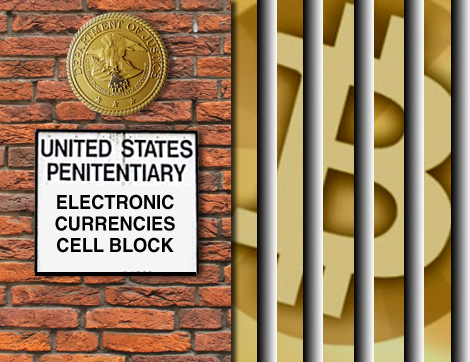
• Alternative currency makers defend motives at hearing
By Mark Anderson
Senate Homeland Security and Governmental Affairs Committee Chairman Tom Carper (D-Del.) recently held a first-ever congressional hearing on virtual currencies. The mid-November hearing, “Beyond Silk Road—Potential Threats, Risks and Promises of Virtual Currency,” explored the positives and negatives for the federal government and society related to currencies that have been created in electronic format on the Internet.
Carper, who described virtual currencies as “digital cash that can be used and transferred nearly anonymously,” added in a press release that this monetary technology “presents some new and unique risks, but with it . . . great potential. The federal government and society as a whole need to come together to figure out how to effectively deal with it.”
Witnesses at the November hearing included representatives of the Treasury Department’s Financial Crimes Enforcement Network (FinCEN), Department of Justice, Department of Homeland Security and private industry representatives including the Bitcoin Foundation and the International Centre for Missing & Exploited Children.
Bitcoin has become increasingly popular on the Internet. It is electronic currency that has been created using complicated computer programs and cannot be forged or counterfeited.
Patrick Murck, Bitcoin Foundation’s general counsel, described Bitcoin as “a decentralized store of value and open-ledger payment network that operates securely, efficiently and at low cost without the need for any third-party intermediaries.”
Murck added: “Bitcoin and digital currency alone will not alleviate issues of poverty and financial exclusion that effect vulnerable populations around the world. However, Bitcoin can provide a safe store of wealth and a global transaction network that cannot be corrupted or abused by those who would seek to exploit or harm vulnerable populations. It can help advance liberty and dignity for people worldwide, restore financial privacy for law-abiding people, and provide a stable money supply in countries where the currency may be mismanaged.
“The United States has an acute interest in maintaining its place as a global leader in developing this cutting edge technology, fostering financial services innovation, and spreading individual freedom and liberty around the globe,” he also stated.
Jennifer Shasky Calvery, director of FinCEN, focused on the association of crime with virtual money, while avoiding how the “legitimate” financial system is itself criminally-oriented with its usury and the privately-controlled creation of interest-laden Federal Reserve notes that fuel a perpetual debt spiral.
Preferring to focus on criminals much lower on the financial food chain, Ms. Calvery said: “Because any financial institution, payment system or medium of exchange has the potential to be exploited for money laundering, fighting such illicit use requires consistent regulation across the financial system. Virtual currency is not different from other financial products and services in this regard.”
She also named Liberty Reserve, a Costa Rica-based centralized digital currency service. Federal prosecutors argued that due to lax security, alleged criminal activity largely went undetected. The U.S. seized the service in May 2013 under the USA PATRIOT Act—after an investigation across 17 countries.
Ms. Calvery remarked: “We have seen both centralized and decentralized virtual currencies exploited by illicit actors. Liberty Reserve used its centralized virtual currency as part of an alleged $6 billion money laundering operation purportedly used by criminal organizations engaged in . . . identity theft, investment fraud, computer hacking, narcotics trafficking, and child pornography. One Liberty Reserve co-founder has already pleaded guilty to money laundering in the scheme.”
“And just recently, the Department of Justice has alleged that customers of Silk Road, the largest narcotic and contraband marketplace on the Internet to date, were required to pay in [decentralized] Bitcoins to enable both the operator of Silk Road and its sellers to . . . launder hundreds of millions of dollars. With money laundering activity already valued in the billions of dollars, virtual currency is certainly worthy of [our] attention,” she concluded.


